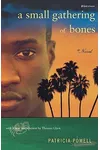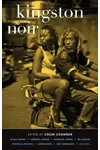Picture a Jamaican storyteller whose words weave tales of identity, love, and resilience—meet Patricia Powell! Born in 1966 in Jamaica, this award-winning author has carved a unique space in Caribbean literature with novels that dive deep into the human experience. From the vibrant streets of Kingston to the halls of academia, Powell’s journey is as compelling as her stories.
With a fearless pen, she tackles themes of cultural displacement, sexuality, and healing, earning accolades and a devoted readership. Ready to explore the world of a literary trailblazer? Let’s dive into Patricia Powell’s life and legacy!
The Making of Patricia Powell
Born in Jamaica, Patricia Powell grew up immersed in the island’s rich cultural tapestry, which later infused her writing with vivid authenticity. In her late teens, she moved to the United States, a shift that shaped her exploration of displacement. She earned a bachelor’s degree from Wellesley College and an MFA in creative writing from Brown University, studying under luminaries like Michael Ondaatje. Her academic path led her to teaching, starting in 1991 at the University of Massachusetts Boston, and later at prestigious institutions like Harvard, MIT, and Mills College, where she’s been a professor since 2009.
Powell’s early life and education fueled her storytelling. The blend of Jamaican roots and American experiences gave her a unique lens, allowing her to craft narratives that bridge cultures and challenge norms. Her teaching career also reflects her passion for nurturing new voices, making her a mentor as much as a writer.
Patricia Powell’s Unforgettable Stories
Powell’s novels are bold, lyrical, and deeply human, often written in a modified Jamaican patois that pulses with life. Her debut, Me Dying Trial (1993), follows Gwennie Glaspole, a schoolteacher trapped in an abusive marriage, as she fights for independence. Critics praised its poetic vernacular and raw portrayal of Jamaican womanhood, marking Powell as a rising star.
In A Small Gathering of Bones (2003), Powell explores the AIDS crisis through the lens of a gay Jamaican man, blending tenderness and tragedy. The Pagoda (1998) is a daring historical tale of a cross-dressing Chinese immigrant in Jamaica, weaving themes of gender and race. Her 2009 novel, The Fullness of Everything, delves into family and reconciliation, showcasing her knack for complex characters. Powell’s style—rich with sensual imagery and social insight—creates worlds that feel both exotic and intimately familiar.
Her work doesn’t shy away from tough topics. Whether it’s homophobia, cultural identity, or colonial legacies, Powell’s stories challenge readers to confront uncomfortable truths while celebrating resilience. Her ability to craft diverse characters, from Nanny, a Jamaican independence heroine, to immigrant dreamers, sets her apart in Caribbean literature.
Why Patricia Powell Matters
Patricia Powell’s impact lies in her fearless storytelling and her role as a cultural bridge. Her novels amplify marginalized voices—queer, Caribbean, immigrant—giving them space in a literary world often dominated by mainstream narratives. Awards like the PEN New England Discovery Award and the Ferro-Grumley Award for fiction highlight her influence, while her anthologized stories reach global audiences.
As a professor and mentor, Powell shapes the next generation of writers, particularly those exploring diverse identities. Her work resonates with readers seeking authentic, thought-provoking stories, cementing her as a vital voice in the Caribbean-American diaspora. Her upcoming fifth novel promises to continue this legacy, pushing boundaries with her signature flair.
- Born: 1966, Jamaica
- Key Works: Me Dying Trial, A Small Gathering of Bones, The Pagoda, The Fullness of Everything
- Awards: PEN New England Discovery Award, Ferro-Grumley Award, Lila-Wallace Reader’s Digest Writers’ Award
Snag Me Dying Trial or The Pagoda and dive into Patricia Powell’s vibrant, soul-stirring world of Caribbean literature!





